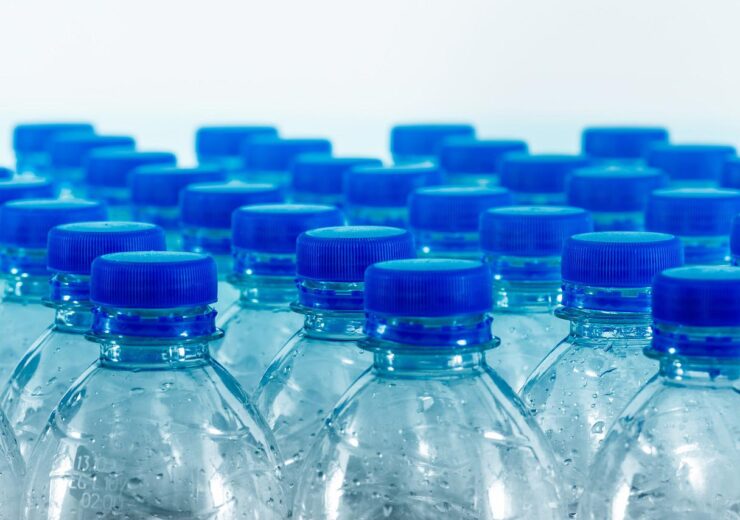The new technology converts carbon emissions from steel mills or gasified waste biomass directly into MEG, a building block for PET, resin, fibres and bottles

LanzaTech, Danone find new method to make PET bottles from captured carbon. (Credit: Willfried Wende from Pixabay)
A consortium of LanzaTech and food & beverages firm Danone has discovered a new technology to generate monoethylene glycol (MEG), a building block for PET, resin, fibres and bottles.
The new technology converts carbon emissions from steel mills or gasified waste biomass directly into MEG.
The carbon capture technique leverages the patented designed microbe to convert carbon emissions into MEG directly through fermentation without the need for ethanol intermediate to simplify the MEG supply chain.
The presence of MEG was confirmed by two external laboratories, and the direct generation of MEG was demonstrated at a laboratory scale.
LanzaTech CEO Dr Jennifer Holmgren said: “We have made a breakthrough in the production of sustainable PET that has vast potential to reduce the overall environmental impact of the process.
“This is a technological breakthrough which could have significant impact, with applications in multiple sectors, including packaging and textiles!”
LanzaTech has employed Synthetic Biology and AI techniques to produce MEG directly from carbon emissions in this proof-of-concept stage.
It has also reprogrammed its ethanol-producing bacteria to fix and route carbon into MEG by combining and prototyping several sets of enzymes identified from various sources in unique ways.
For the first time, the proof-of-concept study has demonstrated that bacteria can synthesise MEG directly from gas.
The approach skips the several processing stages required to convert ethanol to ethylene, then ethylene oxide, and finally to MEG by manufacturing MEG directly.
When successfully scaled following a multi-year development phase, LanzaTech expects the direct production process to result in PET bottles and PET fibres with a lower environmental effect.
LanzaTech is collaborating with many firms to reduce packaging’s environmental impact.
It also wants to continue the scale-up phase of its direct-to-MEG technology with the help of Danone, based on the success of the proof-of-concept phase.
In October 2020, LanzaTech partnered with cosmetics firm L’Oréal and petroleum business Total to develop plastic cosmetics bottles from industrial carbon emissions.
